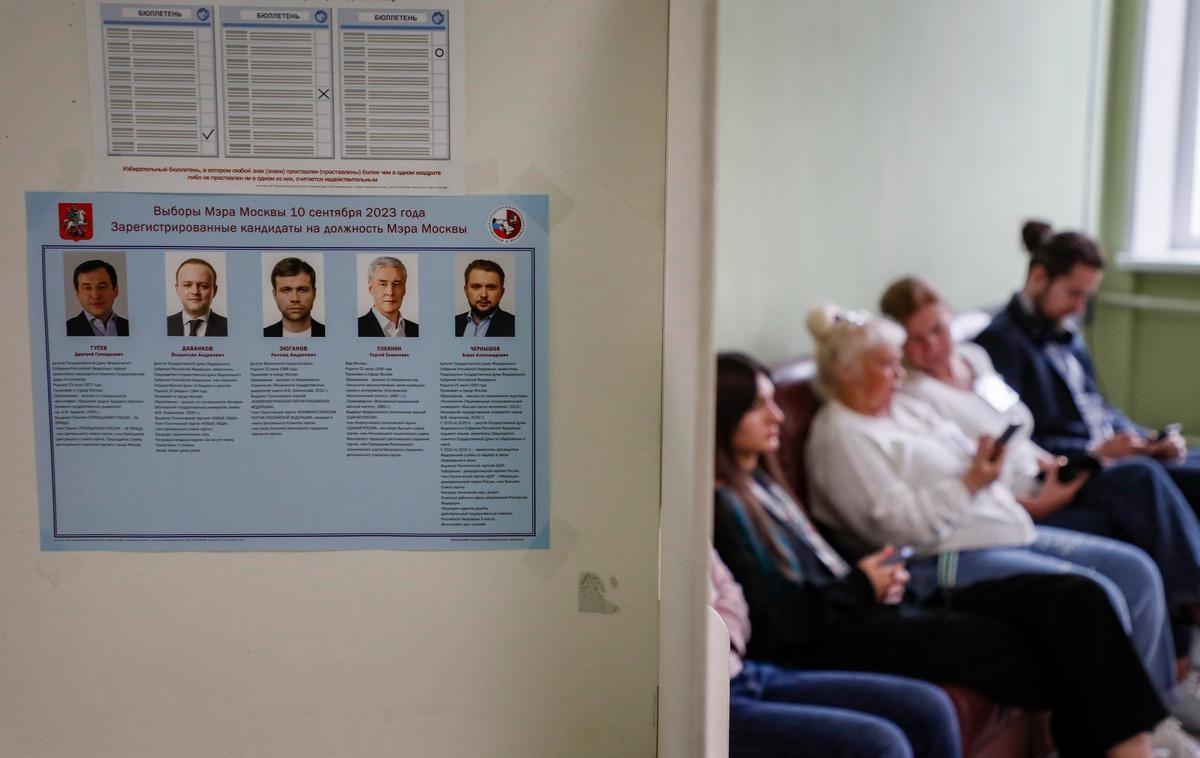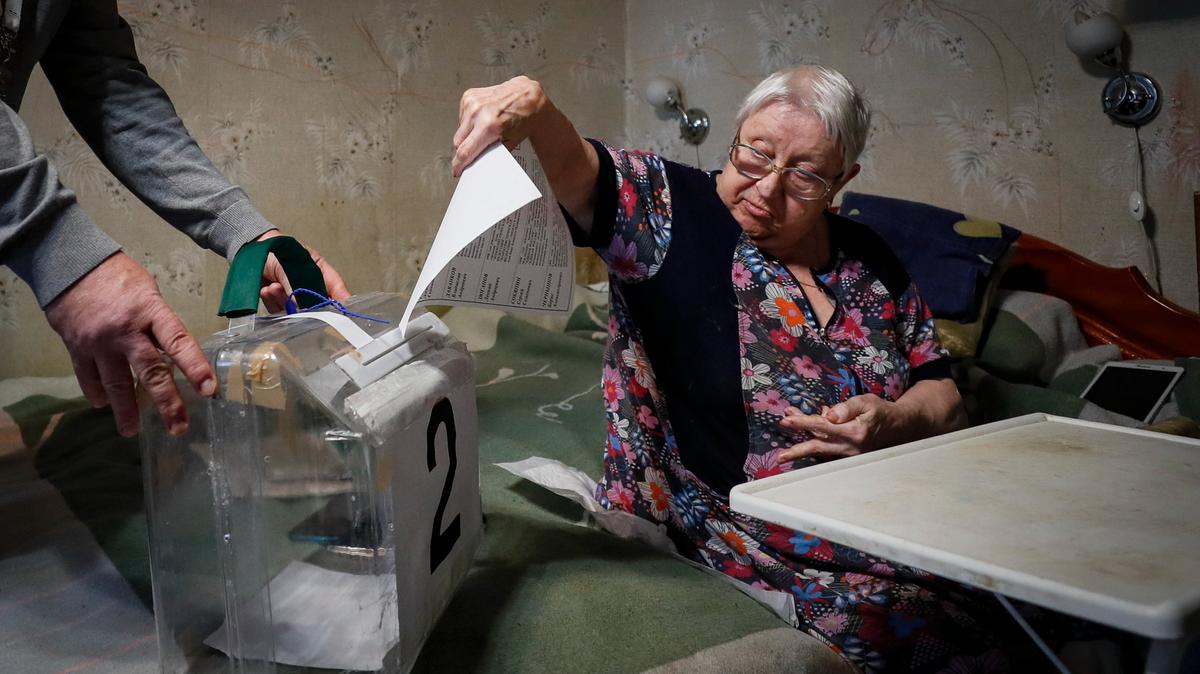Held over three days and 11 time zones, last weekend’s local and regional elections in Russia saw candidates put forward by the ruling United Russia party win almost every race, to the surprise of absolutely nobody.
Independent candidates were noticeably absent from the ballot due to the municipal filter, a legal requirement for would-be candidates to have the backing of between 5-10% of local lawmakers, which also conveniently ensures anyone challenging the status quo will be disqualified before the election campaign even begins. The only alternative to voting for United Russia this year was voting for one of the Kremlin-sanctioned opposition parties, whose candidates exist solely to give the impression of political plurality.
Voter rights movement Golos, the only election watchdog in Russia independent of the government, reported that citizens’ ability to exercise their voting rights had “significantly worsened, even compared to the low bar set by the elections five years ago”.
Overall, this year’s regional elections “turned out to be even less free and fair,” Golos concluded, citing multiple measures that had compromised the vote. These included preparations made for votes also controversially being held in the Russian-occupied territories of Ukraine, which Golos called “unprecedented”. No information is available on voter turnout at polling stations in the annexed territories or even the exact extent of the territory they cover. A decision to ban election monitors from observing the vote in the occupied Ukrainian regions further undermined the process.

Election observers at a polling station in Moscow, 8 September 2023. Photo: EPA-EFE/YURI KOCHETKOV
Novaya-Europe asked two veteran observers of elections in Russia to share their reactions to last weekend’s poll with us.

Fedor Krasheninnikov
political scientist and social activist
It’s not really a surprise that these elections had less impact than previous ones. The start of the war meant that most opposition leaders fled the country to avoid ending up in prison. Opposition parties have been dissolved and many activists and journalists have left Russia. Critical media outlets have been crushed, and the entire system for monitoring elections has been dismantled. These elections were as uneventful as they were designed to be, a purely internal process that needn’t have attracted our attention as we had nothing to do with them.
It’s worth noting that government candidates were polling more or less the same level of support in the occupied territories as they were in Russia. What does that mean? It means that the level of vote tampering is the same. There were no elections. You might as well have tried gleaning the level of popular support for the Soviet government from the results of the 1984 election!
An election held under an authoritarian government, particularly in the context of war and military dictatorship, will simply never be a good way to gauge the popular mood — it’s more of a way for the authorities to show us what they think we should feel about what’s going on in the country.
An oppressed and unarmed civil society is powerless to prevent the powers that be from holding any kind of election they see fit, though. Some emigré Russians are running around talking about how if we all vote in the presidential election Putin will lose. While I agree, of course, that something should be done, seriously believing that an election held during wartime will actually involve the counting of votes and the publishing of results is a total fallacy.
To get an idea of how next year’s presidential elections will go down, I would recommend everyone familiarise themselves with what happened in this year’s elections for Moscow mayor. There’ll be a main candidate who will be surrounded by clowns and randoms who won’t even pretend they are presenting a serious challenge to anyone or anything. There will also be a couple of candidates who’ll spend their campaigns praising Putin. Everyone else will keep their head down. Eventually, a more or less neutral candidate put forward by the small pro-Putin New People party will be chosen to receive 6% of the vote, or perhaps 4% to give the election a whiff of legitimacy, while Putin will get his 85%. This is what future presidential elections will look like. There will be nobody to monitor them, and nobody to care about them either. People won’t even be encouraged to come out and vote — they’ll just say everyone voted for Putin online.
How can anyone know who voted for whom when a person clicks a button … we’ll just be told that everyone voted for Putin. The fact that there was no hubbub in the streets? Everyone voted at home. There were no campaigns in Moscow to get the vote out. Why bother? They don’t have to get the vote out as the majority of people voted online to support their beloved mayor, Sergey Sobyanin.
How will people be able to tell how widely disliked the regime is? You don’t go out, you stay home and vote (or not) at home, and say: “I didn’t notice any tension.” Online voting will be a game-changer by the time of the next presidential election, and will mark our final reversion to Soviet times, back when there were lots of elections, but who voted for whom and in what number essentially remained a mystery.
The share of the vote regional leaders are allowed to receive has been capped at 80%, given that Putin’s share of the vote next year has to be around 90%. Nobody else can come anywhere close to that, of course, as it would risk giving the impression that any politician in Russia could approach Putin’s popularity. A vote cap has clearly been applied because if Sobyanin were allowed to, he’d claim he got 90% of the vote. But numbers of that size are reserved for one man only.

Stanislav Andreychuk
co-chair of the Golos movement
There has been a dramatic decrease in the number of people seeking election in Russia at any level. Only those who don’t need to collect signatures or who have already reached an understanding with the administration become candidates these days, whereas running as an independent candidate has become almost impossible.
Furthermore, we’re seeing an increase in the pressure being put on candidates, activists, and voters themselves. Members of nearly every opposition party have been subjected to arrests, detentions, criminal charges, or civil cases. There’s no doubt that censorship is widespread throughout the country and has made it difficult for political parties to communicate with voters even if they stay clear of forbidden topics.
We’re seeing constituents being forced to vote, with online voting and the three days given over to the elections making that easier to do. First of all, it’s easier for bosses to supervise the activity of their staff on a Friday morning than on a Sunday. Secondly, when you vote online, you can’t be sure that your boss won’t find out how you voted, in sharp contrast to what happens if you use a paper ballot.
The power imbalance was felt on polling day, too. Instead of criminal cases being opened against those who stuff ballot boxes, they’re being opened against those attempting to document those violations, or against voters requesting a paper ballot instead of an electronic one, despite them having that right.
On election day, there were major problems with the online voting system with serious malfunctions reported in the Nenets and Novosibirsk regions. People attempting to vote for the Communist Party in the Novosibirsk region noticed that their crosses disappeared from the screen immediately after they made them.
The head of the local electoral commission apparently just shrugged and admitted there was a problem but said that nothing could be done about it as it wasn’t their system. The electoral commission is responsible for holding elections, but control over one of the main ways of voting has been taken out of their hands.
The same thing happened with electronic voter lists in Moscow. There was a glitch on Friday morning that took the system offline until the middle of the day. As a result, people were unable to vote online but were then denied the opportunity to use paper ballots.
People ended up leaving polling stations without exercising their right to vote, while the electoral commissions ended up with different numbers of ballots given out and returned, so some creative accounting was necessary during the counting process.
Through no fault of their own, polling station administrators were falsifying the results of the election, and because the entire system lacks transparency, it’s still not clear what exactly went wrong. Not to mention that the principle of the electoral commission’s independence has been fundamentally compromised by the fact that online voting is not subject to its supervision.
Join us in rebuilding Novaya Gazeta Europe
The Russian government has banned independent media. We were forced to leave our country in order to keep doing our job, telling our readers about what is going on Russia, Ukraine and Europe.
We will continue fighting against warfare and dictatorship. We believe that freedom of speech is the most efficient antidote against tyranny. Support us financially to help us fight for peace and freedom.
By clicking the Support button, you agree to the processing of your personal data.
To cancel a regular donation, please write to [email protected]

